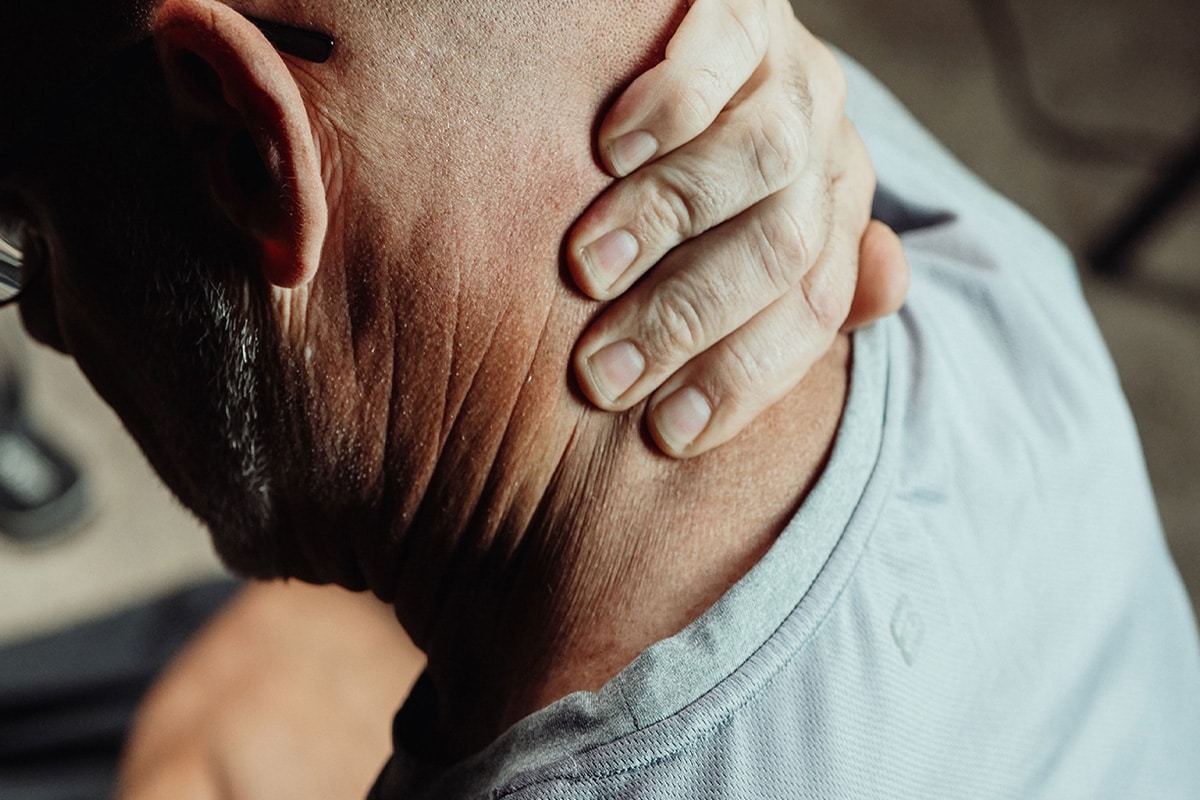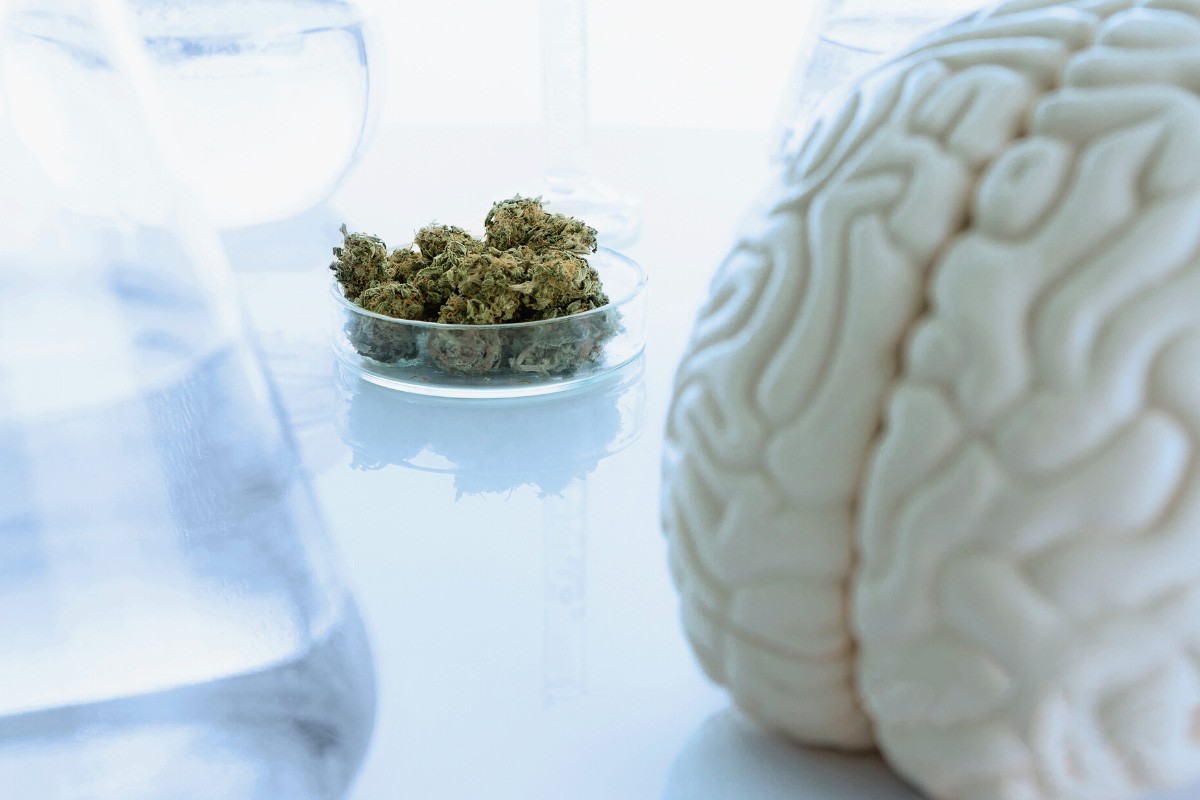Medical cannabis was proven to be a remedy for pain in numerous clinical studies with few side effects. A large proportion of pain in the population is linked to musculoskeletal pain (pain originating from muscles, bones or joints). Among these, osteoarthritis is a particularly common musculoskeletal condition for which patients seek treatment for their pain. Melissa O’Brien and her team from the Department of Pharmacology and Anesthesiology at Dalhousie University in Halifax, Canada, therefore investigated the efficacy of medical cannabis specifically for the treatment of arthritis and joint pain.
Arthritis – disease, symptoms and standard approaches for therapy4
Patients with osteoarthritis suffer primarily from pain, which may be both chronic and intermittent. They show a variety of pain symptoms that can be divided into three categories: inflammatory (due to inflammatory processes in the joints), nociceptive (due to activation of pain receptors in the brain), and neuropathic (due to nerve damages). These different mechanisms complicate accurate treatment as a blend of different analgesics is required to alleviate pain symptoms. However, these analgesics are also associated with significant side effects. Standard treatment for osteoarthritis includes anti-inflammatory drugs or opioids and aim to reduce the inflammation in joint tissues and relieve pain. Side effects of these medications may cause severe stress on the cardiovascular system and digestive tract. Opioids are prescribed for alleviating severe pain and are associated with a high potential for addiction. In addition, opioids have been known to cause side effects such as nausea, constipation, and potentially hazardous cardiorespiratory depression. Up to 60% of patients continue to report symptoms despite taking analgesic and anti-inflammatory medications.
The Endocannabinoid System and Efficacy in Arthritis
In order to improve treatment for patients suffering from osteoarthritis, pain should be relieved without causing severe side effects. The endocannabinoid system may be a viable target for new osteoarthritis treatment options as it addresses the body’s natural analgesic system. Cannabinoids release their effects through specific targets (the cannabinoid receptors). Particularly cannabinoid receptor 1 is involved in pain processing and signal transmission. Cannabinoid receptor 2 is located on immune cells and is thus part of the immune system. Activation of this receptor can contribute to reducing inflammation. Endogenous ligands for the cannabinoid receptors (endocannabinoids) activate the endocannabinoid system and regulate the body’s inflammatory response and alleviate pain. The two main components of medical cannabis – THC and CBD – are used to elicit an effect comparable to endocannabinoids at cannabinoid receptors. They therefore represent an attractive target for the treatment of arthritis and may contribute to symptom alleviation. The administration of THC has proven to be effective for the treatment of pain, particularly neuropathic pain associated with multiple sclerosis and cancer.
Study – the efficacy of medical cannabis for the treatment of ostearthritis
In an extensive literature search Melissa O’Brien and her team found a variety of publications that used cannabis for joint pain and osteoarthritis in both animal studies and clinical studies with patients.
Several animal studies found cannabinoid receptors in the joint tissue of mice and rats that may be used as a target of medical cannabis for the treatment of arthritis. Direct administration of synthetic cannabinoids into the inflamed joints of animals significantly reduced their pain response. Furthermore, this method reduced the inflammation in the joints of these rodents. Additionally, dose-dependent analgesic and anti-inflammatory effects of cannabidiol (CBD) were demonstrated. Accordingly, with an increasing dose of CBD, the analgesic and anti-inflammatory effect could be enhanced. Another study indicated the prophylactic efficacy of cannabinoid treatment: cannabinoids prevented nerve damage and associated neuropathic pain. With regards to the arthritis pain mechanisms described above, treatment with cannabis proved to be highly effective by decreasing nociceptive, inflammatory, and neuropathic pain. Studies in animals provide strong evidence that cannabinoids, and CBD in particular, are an effective treatment for arthritis and can both relieve pain and reduce inflammatory flares in joints and nerves.
To date, there is a paucity of clinical trials evaluating the efficacy of medical cannabis to alleviate symptoms in patients with osteoarthritis. However, various publications found the same cannabinoid receptors in the joint tissue of patients as they did in animal studies. This provides a first indication for the efficacy of medical cannabis as a treatment for osteoarthritis pain. O’Brien and colleagues point to other studies that investigated the efficacy of medical cannabis to treat neuropathic and inflammatory pain conditions. In total, 18 clinical trials were included into this review that used medical cannabis for neuropathic pain, fibromyalgia, rheumatoid arthritis, and chronic pain. Therapy with cannabis lead to a significant relief of pain symptoms in more than 80% of these studies. Overall, only minor side effects such as dry mouth and mild dizziness were reported for the use of cannabis (inhalation, sublingual spray, oil).
Conclusion
O’Brien and her team demonstrate the proven efficacy of cannabinoid therapy, and CBD in particular, for the treatment of arthritis in animal studies. Despite a paucity of studies on the treatment of arthritis in patients, other studies on inflammatory and neuropathic pain suggest that medical cannabis is highly effective.
Medical cannabis, and especially CBD, is a suitable therapeutic option for the treatment of arthritis. It can be used for prophylaxis as well as acute treatment and shows high tolerability with a low side effect profile.







